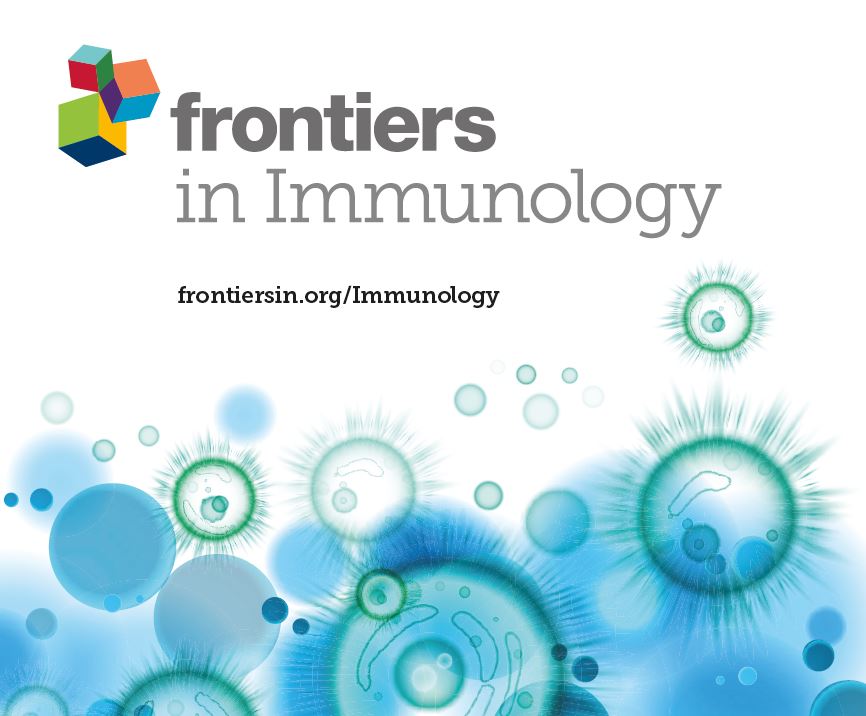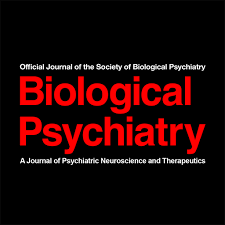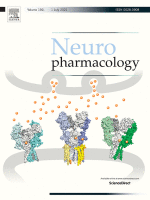|
Dr. Chris Palmer
Metabolism, Mitochondria and Bipolar Disorder (2022) |
Working to Eliminate Homelessness & Criminal Justice Involvement of People with Cognitive Disabilities
|
NARCISSISM, immaturity or
A Kind of pre-mature aging
in Neuro-Developmental, Psychiatric &/or ADDICTION Disorders
developmental mitochondrial dysfunction &
ImmunoSENESCENCE [Aging of the immune System]
|
Val's Take/Conjecture
MITOCHONDRIAL DYSFUNCTION & IMMUNOSENESCENCE
Influence of Immune System Abnormalities Caused by Maternal Immune Activation in the Postnatal Period (2024)
*Japanese Researchers Evaluating the link between immune characteristics and attention deficit hyperactivity disorder through a bi-directional Mendelian randomization study (2024) *Chinese Researchers Correlations between personality traits, personality disorders, and immunometabolic markers (2024)
*Swedish Researchers |
De Staat
Witch Doctor For the person who is PRE-MATURELY AGING --- that can look like ASYNCHRONY.
Additionally, the DYNAMICS of this PRE-MATURE AGING and ASYNCHRONY are not necessarily playing out the way we might think. LEVELS of ANALYSIS & DEFINITIONS
Antisocial Personality Disorder DSM-5-TR [Text Revision] Criteria
Adults who do not have evidence of conduct disorder in childhood and adolescence but otherwise meet the diagnostic criteria for ASPD can be diagnosed with adult antisocial behavior. While adult antisocial behavior is not a formal DSM-5-TR diagnosis, the DSM-5-TR lists it as a V code, used in the DSM and International Classification of Diseases, Ninth Revision (ICD-9), or Z code used in the ICD-10. See Antisocial Personality Disorder (2024) on StatPearls.
|
Preview
The hard algebra of the biological basis of behavior
and Anti-Social Personality Disorder
|
Val's Take/Conjecture
|
"Plato's Theory of Forms, which posits that true reality lies in eternal, unchanging Forms, has faced significant criticism, particularly from his student Aristotle.
"Key criticisms include the separation of Forms from the physical world, the \"Third Man\" argument leading to infinite regress, and the difficulty of applying the theory to the everyday world." ---Google AI "Aristotle will also go on to spend even more space criticizing that very account primarily the notion of the forms as contributing to wisdom." --- The Philosophy Guy
OBSERVABLE BEHAVIOR is RELEVANT.
ENVIRONMENT is RELEVANT. The UNDERLYING BIOLOGY is a NON-NEGOTIABLE VARIABLE in Medicine.
Dr. Thomas Insel, then Director of the National Institute of Mental Health, said mental health professionals try to help people change through compassion --- but much of what they do is more RELIGION than SCIENCE.
When one doesn't have the science, it doesn't seem like a significant problem.
Well, we're getting the SCIENCE, but the mental health profession does not appear to appreciate the gravity of the situation, especially in Criminal Justice and especially with respect to Anti-Social Personality Disorder. |
Cytokines as NEuro-Modulators
The Pace of research continues to quicken
It's not just "Neuro-Developmental" and "Psychiatric" Disorders --- it's also "Addiction"
|
Val's Take/Conjecture
Given that behavioral addictions are prevalent, frequently co-occur with psychiatric disorders, may often go undiagnosed and untreated, and have been linked to poorer treatment outcomes, active screening and treatment are indicated. Unveiling causal relationships between addiction phenotypes and inflammatory cytokines: insights from bidirectional mendelian randomization and bibliometric analysis (2025)
|
Cytokines as neuromodulators: insights from experimental studies in humans and non-human primates (2025)
Abstract Bullets added.
|
PREVIEW
Maternal immune responses, Gut MIcrobiota and Sexuality?
Male Homosexuality, Precocious puberty and Female Obesity
|
Val's Take/Conjecture
And there's a lot more.
CBS News: ADHD linked to obesity in girls (2016) Val's Take
More recently, we've recognized MITOCHONDRIAL DYSFUNCTION AND DYSREGULATED ATP PRODUCTION as issues in Neuro-Developmental and Psychiatric Disorders. For the woman with MITOCHONDRIAL DYSFUNCTION and DYSREGULATED ATP [Energy] PRODUCTION ---- Were her children surviving if she had more stored energy? In some cases (though not all), there must have been an evolutionary advantage. But evolutionary pressure in Modern Times for both men and women to be "THIN" or some version of "FIT" is INTENSE. At least some of the current diet drugs seem to have an effect on MITOCHONDRIAL DYSFUNCTION. Bridging ADHD and Metabolic Disorders: Insights into Shared Mechanisms and Clinical Implications (2025)
Attention-deficit/hyperactivity disorder (ADHD) is a neurodevelopmental disorder characterized by inattention, impulsivity and/or hyperactivity. |
Bogaert, an internationally recognized expert in human sexuality, said the study is groundbreaking for at least two major reasons:
Bogaert said that since the older brother effect was first discovered two decades ago, many studies have replicated it, including cross-cultural ones. But when a Bogaert research project 10 years ago strongly indicated that the older brother effect in men was likely biological in origin, he saw the need to look at prenatal factors, and set out to test the major biological theory explaining this effect through a lab study. We found that patients with ASD were prone to precocious puberty, regardless of sex or comorbid neuropsychiatric disorders. A Multi-Perspective Qualitative Study About Working With Autistic Individuals in Prison-Based Interventions to Address Sexual Offending (2025)
*UK Researchers A SUMMING UP
As we get those MAJOR PARADIGM SHIFTS in Mental Health --- it starts to shift our views on other issues that we might have considered unrelated.
|
Preview
Regulatory t Cells
(a type of immune cell)
Are playing roles in Neuro-developmental & Psychiatric Disorders
|
Val's Take/Conjecture
Abstract Background: Post-traumatic stress disorder (PTSD) is a debilitating psychological disorder that also presents with neuroimmune irregularities. AbstractRecent research has shed light on the intricate relationship between mood disorders, such as major depressive disorder (MDD) and bipolar disorder (BD), and inflammation. |
Immune abnormalities including an insufficiency of regulatory T cells (Treg) and increased blood-based inflammatory markers have been observed in bipolar disorders (BD), particularly during depression. Conclusions: These hypothesis-generating findings highlight T cell dysfunction in AGA+ positive SRD [Schizophrenia Related Disorders], suggesting Tregs protecting against negative symptom severity but also an unidentified other T cell population to possibly be driving negative symptom severity. Strong causal relationships existed between immune cells, circulating inflammatory factors, and NDDs. Inflammatory factors mediated the pathways between immune cells and NDDs [Neurodevelopmental Disorders]. Emerging Mechanisms and Biomarkers Associated with T-Cells and B-Cells in Autoimmune Disorders (2025)
A case study of a 9-year-old girl diagnosed with seronegative autoimmune encephalitis, who displayed severe obsessive-compulsive disorder (OCD) and aggressive behavior, exemplifies the complexities involved in treatment. Lead author: Antonio L. Teixeira
Dr. Antonio Teixeira is at the University of Texas and is one of the world''s leaders in IMMUNO-PSYCHIATRY.
Published by Oxford University Press
|
"DEVELOPMENTAL PATHOLOGIES"
|
Val's Take/Conjecture
WHY IS THIS IMPORTANT?
On the other hand . . .
Modifiable lifestyle factors influencing neurological and psychiatric disorders mediated by structural brain reserve: An observational and Mendelian randomization study (2025)
* Chinese Researchers This issue of "Lifestyle Choices" is a Public Policy Batteground. The Chinese researchers identified why.
Since most brain diseases are either incurable or irreversible, they place a considerable burden on both society and the economy, highlighting the essential role of primary prevention in preserving brain health (Lazar et al., 2021). |
Neuroimmune and behavioral changes elicited by maternal immune activation in mice are ameliorated by early postnatal immune stimulation (2025)
*Researchers at the University of Texas at Austin Our results demonstrate that changes in repetitive-like and social behaviors that are induced by MIA [Maternal Immune Activation] in male mice are not exacerbated by subsequent inflammatory challenge and highlights the importance of considering the timing of stressors in the appearance of developmental pathology. Highlights Chinese researchers are aware of Maternal Immune Activation --- but you wouldn't know it from the paper to the left.
This fudging is common in the US as well, and that is why the Texas paper is so important ---
If we want to prevent Neuro-Developmental and Psychiatric Disorders, we're focusing on:
|
PREVIEW
Sensory processing differences across psychiatric Phenotypes
and Employment
|
Val's Take/Conjecture
TRY SMARTER, NOT HARDER
One of the defining characteristics of maternal immune activation is ANXIETY in "offspring."
Additionally, for animals ---- UNPREDICTABLE CHRONIC STRESS can be profoundly damaging.
For many neuro-diverse people, jobs are BURNING THEM OUT repeatedly.
We ignore those SENSORY PROCESSING DIFFERENCES at our peril --- BUT
What we did know is that we had some STRENGTHS and we were much fuzzier on what our true weaknesses were ----
|
Highlights
Many individuals with psychiatric disorders report difficulties in sensory processing. This meta-analysis examined sensory processing patterns in psychiatric conditions. We detected a general pattern of sensory processing difficulties in psychopathology. Sensory processing difficulties are considered to be a transdiagnostic phenotype. Further research may improve long-term prognosis and treatment in psychiatry. WHAT ARE THE WEAKNESSES & WHY?
|
Why is it so important to get a new label or at least an additional label?
|
Val's Take/Conjecture
|
A single one-word label is enough to change your brain's basic pre-conscious response to someone in pain.
|
Preview
China is a Major Mental Health research leader
with ground-breaking work in understanding the neuro-Immune connection to psychiatric disorders.
|
Val's Take/Conjecture
|
"Mental disorders are the leading causes of disability in children and adolescents in China, and the disease burden varies geographically.
"Careful planning of health services, including consideration of the local situation, is needed." |
Preview
TRANSLATIONAL MEDICINE AS A
JUSTICE ISSUE
|
Val's Take/Conjecture
|
|
The big reveal
Neuro-Developmental, Psychiatric and Neuro-Degenerative disorders are --
NEURO-Immune Disorders
|
Val's Take/Conjecture
PRECISION MEDICINE
From Homeostasis to Neuroinflammation: Insights into Cellular and Molecular Interactions and Network Dynamics (2025)
*Researchers from Germany "In this article, we first characterize the key players in neuroimmune interactions, including
Under homeostatic conditions, these elements promote cellular cooperation and stability, whereas in neuroinflammatory states, they drive adaptive responses that may become pathological if dysregulated. We examine how neuroimmune interactions, mediated through these cellular actors and signaling pathways, create complex networks that regulate CNS functionality and respond to injury or inflammation. To further elucidate these dynamics, we provide insights using a multilayer network (MLN) approach, highlighting the interconnected nature of neuroimmune interactions under both inflammatory and homeostatic conditions. This perspective aims to enhance our understanding of neuroimmune communication and the mechanisms underlying shifts from homeostasis to neuroinflammation. [Bullets added] |
Prenatal and postnatal neuroimmune interactions in neurodevelopmental disorders (2024)
*Researchers from South Korea, Harvard and the Massachusetts Institute of Technology Peripheral Immune-Inflammatory Pathways in Major Depressive Disorder, Bipolar Disorder, and Schizophrenia: Exploring Their Potential as Treatment Targets (2025)
*Researchers from China, Iraq, Bulgaria, Belgium, Thailand and South Korea "The evidence underscores the clinical importance of immune-targeted augmentation treatments in psychiatric disorders and supports the ongoing development of these novel pharmacotherapies within a precision medicine paradigm."
Purpose: Recent advancements in psycho-neuro-endocrine-immunology indicate that numerous noncommunicable diseases (NCDs) originate from disruptions in the cytokine immune network, resulting in chronic inflammatory responses. . . .
Results: The neuroimmune regimen successfully halted cancer progression in 68% of cancer patients, who also reported improvements in mood, sleep, and relief from anxiety, pain, and fatigue.
In patients with autoimmune diseases, the treatment effectively controlled the disease process, remarkable in cases of multiple sclerosis. Additionally, positive outcomes were observed in patients with Parkinson's disease, Alzheimer's disease, and depression. |
PREVIEW
Work Requirements and Mitochondrial dysfunction across a spectrum
|
Val's Take/Conjecture
|
SciShow
Exercise Actually Makes Chronic Fatigue Syndrome Worse (2025) |
|
Anti-Social Personality Disorder as a Neuro-Developmental Disability |
Your browser does not support viewing this document. Click here to download the document.
|
Policy Challenges
top pages
At this time, we generally do not provide INDIVIDUAL ADVOCACY. Further, we do not address Individual Requests for Information and Referral --- See the Orchid Indexes for OTHER RESOURCES.























































